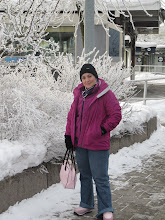Huge, round, imploringly innocent, brown eyes turn to mine... Please, please... they beg me silently. Oh man ... the desperation is almost tangible.
A thrombosed haemorrhoid, a warm breezy saturday afternoon, a busy busy stomach happily digesting away at one hour ago's lunch ... a discomforted over weight patient, and a desperate surgeon.
All eyes on me.
As far as I am aware, surgeons encounter the term ASA at some point during their training. Ok, they may not be aware of the full implication of those three letters, but they hopefully get the general idea.
ASA is the American Society of Anaesthesiologists. A bunch of people who spend years and millions doing research, developing protocols and safety guidelines regarding the administration of anaesthesia. Then they are kind enough to print and bind all that excess knowledge, and distribute it world wide. Of course, whether we choose to use the info or not, is totally our prerogative.
The cool thing is, that although the safety of the patient is put above all else, the safety of the anaesthetist somehow gets all tangled up in there too. So ... if the patient is safe - it's almost a given that the doper is safe. If the patient is in trouble, all eyes fall on the anaesthetist first.
Perhaps you can see why we adhere by the ASA guidelines as much as possible. It's in the best interest of everyone involved. Even the surgeons, although they don't always see it that way.
Latest guidelines regarding pre-operative fasting stipulate NPO x 6 hrs for solids, NPO x 2 hours for clear fluids. As always there are stipulations for specific cases, eg certain patients benefit from getting carbohydrates pre-op etc etc. But in general the 6 hrs / 2hrs rule applies.
Also, we are not unreasonable. The problem of theatre time and long lists is fully understood, time is money after all. More often than not, a case is individualized. We even try to find out exactly what was eaten. A clear broth or bowl of jelly for example, may, according to the severity of the case be categorized under the 2 hrs group. In an absolute emergency where time is life, we have our ways and means of doing what we must, without waiting. But it's not ideal.
Allow me to explain the reason for all this paranoia. Chemical pneumonitis is a type of pneumonia one gets when foreign chemical matter (ie food) finds its way into the lungs.
The treatment for this includes a stay in ICU, on a ventilator with a tube down one's throat, amongst other things. It doesn't happen often, but when it does, it can be rather scary.
With induction of anaesthesia, all smooth muscle tone is relaxed, and the patient can easily vomit especially if there is a full stomach on board. Remeber that the patient is asleep and can't spit out his puke. So if we don't suction it out fast enough, it simply flows into the lungs. Yuk!!!!!!!!!!!!!
Back to the saturday afternoon dilemma. A chubby patient, with an extremely sore bum, satisfied himself to his hearts content, then got up from the lunch table and drove himself to hospital. ( Must have been one hell of an uncomfortable ride!)
The surgeon, desperate to get it over with, making bambi-eyes at me and promising the procedure to be 5 minutes only. Just a bit of propofol please???
All eyes on me.
Do we go ahead or don't we??
Let's see ... sore bum plus 5 hour wait, with all our asses covered vs fixed bum plus aspiration and a 5 star ICU retreat.
I know what I chose. What would you choose???
Subscribe to:
Post Comments (Atom)

I know what I'd do as well. Those bambi eyes will be nowhere in sight when you are on the witness stand trying to "please explain" why you broke an internationally accepted guideline for a non-urgent case.
ReplyDeleteThe surgeon can stick it as far as I am concerned. Or, he can find another anaesthetist who is less, how shall we say, risk averse?
Exactly, but what I cannot understand, is how they can have the audacity to even ask such a thing from us. Aren't they concerned about their patients??? Or is quality control 100% an anaesthetic thing?
ReplyDeleteahhhh I love anaesthetists!!!!!! - from a 22 yr old veteran patient, who has been a patient for 22 yrs (and who follows the above fasting guidelines!!)
ReplyDelete